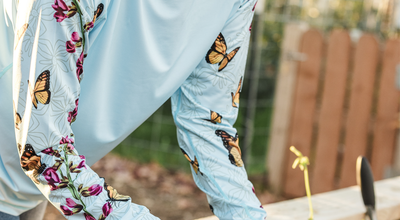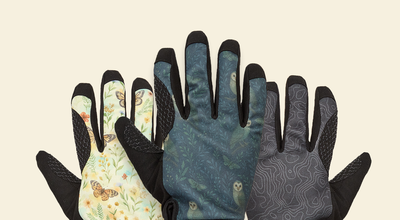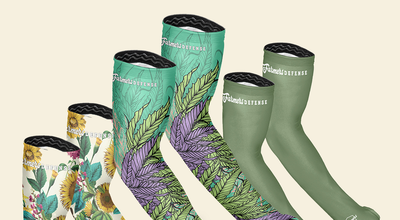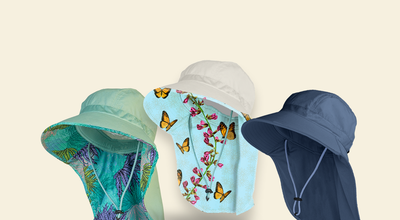How to Attract Pollinators to Your Late Summer Garden: A Guide to Supporting Bees with Farmers Defense's "Save the Bees" Sleeves
Introduction: The Importance of Pollinators
Pollinators are the unsung heroes of our ecosystem, playing a vital role in the growth of our gardens and the food we eat. Attracting these essential creatures to your garden not only enhances its beauty but also contributes to the environment. Here's how you can create a pollinator-friendly garden and support the rehabilitation of bees with Farmers Defense's Save the Bees Sleeves.

1. Plant Pollinator-Friendly Flowers: Native Choices for Late Summer
Selecting native plants that bloom in late summer is key to attracting pollinators. Sunflowers, coneflowers, and goldenrods are excellent choices, providing essential nectar and pollen. These plants not only add color but also nourish bees, butterflies, and other pollinators, ensuring a thriving garden.

2. Provide Water Sources: Essential Hydration for Pollinators
Pollinators need water to survive. By adding a shallow dish filled with water and pebbles, you create a perfect spot for them to drink and rest. Refreshing the water regularly keeps it clean and inviting, making your garden a haven for these vital creatures.
3. Avoid Harmful Pesticides: Organic Practices for a Healthy Garden
Chemicals can be detrimental to pollinators. Embracing organic gardening practices and natural pest control methods ensures a safe environment for bees and other pollinators. By avoiding harmful pesticides, you protect these essential creatures and promote a healthier ecosystem.

4. Create Shelter: Safe Havens for Bees
Providing shelter is crucial for pollinators. Leaving some bare soil and adding bee houses offers nesting sites and protection. These shelters are essential for pollinators to lay eggs and find refuge, fostering a supportive environment for these vital creatures.
5. Farmers Defense's "Save the Bees" Sleeves: A Pollinator's Paradise in California’s Central Valley
Farmers Defense is not just about protection; it's about innovation and sustainability. Our collaboration with Pollinator Partnership and Christine Gemperle, a second-generation almond farmer in Turlock, CA, is a testament to the power of environmentalism in horticulture.
Christine's farm is alive with Longhorned Bees and vibrant wildflowers. Her innovative approach to regenerative farming practices has laid a blueprint for pollinator-friendly farming. Wearing her Farmers Defense protective arm sleeves, Christine shared how they are perfect for harvesting tomatoes without the itchiness.

Her farm stands as a beacon of hope and innovation, embracing environmentally friendly practices that work. Christine's enthusiasm for environmentalism goes beyond farming; it's a way of life. Her collaboration with Farmers Defense supports sustainable agriculture and pushes for innovation, reimagining the future of farming one almond tree at a time.
Check out the full-length article here!
Conclusion: Your Role in Supporting Pollinators and Sustainable Farming
Attracting pollinators to your late summer garden is a rewarding endeavor that benefits both your garden and the environment. By following these guidelines and supporting initiatives like Farmers Defense's Save the Bees Sleeves, you contribute to a larger movement towards sustainable agriculture and pollinator rehabilitation.












